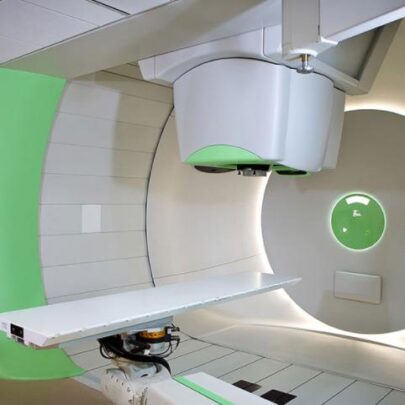Proton Beam Therapy and its Place in Cancer Treatment
April 23, 2021
Proton therapy has been approved by the FDA as a form of cancer treatment for over 30 years. But does it provide any added benefit over photon therapy?
Penn Center for Cancer Care Innovation (PC3I) Director Justin Bekelman, MD, discusses this ongoing debate and how to resolve it with Managed Healthcare Executive. The article elevates the nuanced, ongoing conversations around photon versus proton therapy for cancer treatment, specifically highlighting PC3I’s RadComp Study. The RadComp study, short for Radiotherapy Comparative Effectiveness, is currently comparing these two types of radiation therapies for the treatment of breast cancer.
Both photons and protons break down DNA within cancer cells, thus preventing those cells from replicating. Neither photon nor proton therapy is experimental. Both are on the cutting-edge of cancer therapy.
“What remains undefined is whether [proton beam therapy] is any better than what we currently use…. It is a proven treatment, but is it proven as better than what we usually do for the prevalent cancers? The answer is not yet,” Bekelman shared.
Bekelman also highlights an ongoing barrier to enrollment in clinical trials designed to answer these questions, saying, “There remains a gap in engagement across manufacturers, providers, insurers, and funders on how to pay for proton therapy treatments as part of large definitive randomized trials of this technology.”
What remains undefined is whether [proton beam therapy] is any better than what we currently use…. It is a proven treatment, but is it proven as better than what we usually do for the prevalent cancers? The answer is not yet
Bekelman
Continue reading the full article at Managed Healthcare Executive.

